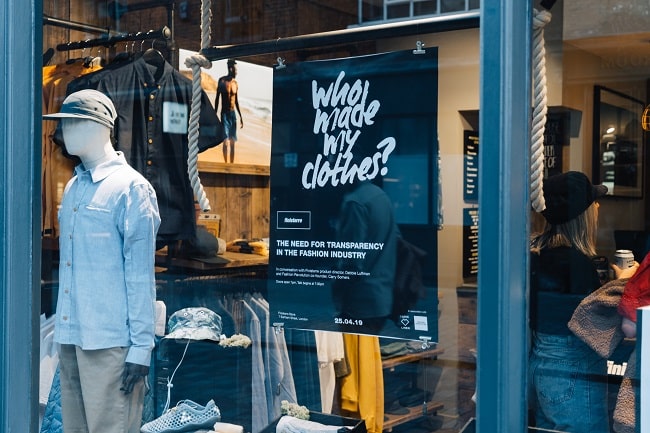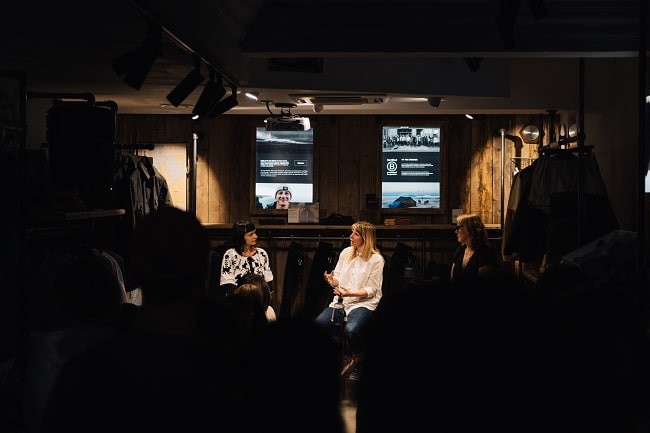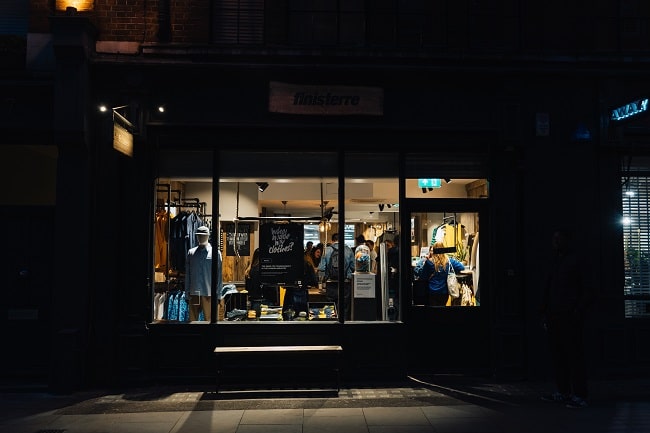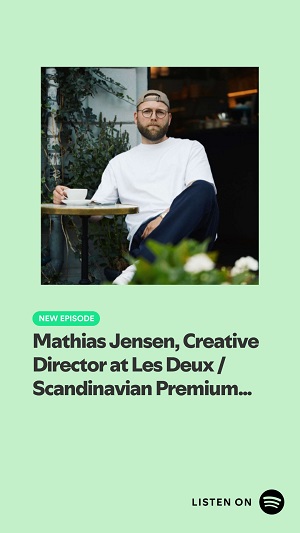1
HOME > Events >
THE NEED FOR TRANSPARENCY IN THE FASHION INDUSTRY
FINISTERRE PRODUCT DIRECTOR, DEBBIE LUFFMAN AND FASHION REVOLUTION CO-FOUNDER, CARRY SOMERS DISCUSS HOW CLOTHING BRANDS CAN CREATE A MORE SUSTAINABLE FUTURE
Written by Bec Loades in Events on the 7th May 2019
Photography by Tom Baker

We have mentioned British brand Finisterre before on MenswearStyle, and they are worth mentioning many times over, not just because of their products but because of their innovative moves within sustainable fashion. Starting out in 2003 in St Agnes, Finisterre have been determined to create clothing and accessories that are practical, wearable and stylish, whilst striving to use as much recyclable materials as possible. They are recognised for their surfer inspired designs such as brightly coloured waterproof jackets, fisherman jumpers, organic cotton tees and printed swimwear.
Recently, MenswearStyle were invited to Finisterre’s London store in Covent Garden, to listen to a talk between their Product Director, Debbie Luffman, and Fashion Revolution’s Co-founder, Carry Somers. If you aren’t familiar with Fashion Revolution, this is a global group of people e.g retailers, academics and designers who communicate between themselves and the public to highlight key issues in the fashion industry; working together to ‘change the way our clothes are sourced, produced and consumed, so that clothing is made in a safe, clean and fair way.’ Fashion Revolution organise numerous events across the world including their Fashion Revolution Week which ran from 22nd April to 28th April. Their campaign for this year went viral with their hashtag of #whomademyclothes. They have encouraged brands and producers to respond with #imadeyourclothes to close the gap between themselves and the consumer, whilst also encouraging transparency in their supply chain.

‘Transparency’ was the key word on the night at Finisterre and one which Carry Somers wishes all brands would adopt when it comes to releasing accurate figures and information about their levels of sustainability to the public. Carry provided some surprising statistics including that, “only 26% of brands and retailers are disclosing their investment in circular closed-route resources and technologies, with the aim of reducing consumption and increasing resource efficiency.” She made the valid point that if brands are open and ‘transparent’ about their production processes whilst accepting accountability, we as consumers, are more likely to make more responsible purchases. The talk was a great opportunity to learn more about the approaches Finisterre take. They claim sustainability is part of their DNA, and it has clearly been their main ethos from day one. As Debbie Luffman explained, with items like wetsuits and waterproofs, there is a limit to what you can do with natural fibres. However, with innovation there are ways to avoid this and Finisterre are determined to search for the best possible fabrics, to make the best ‘fit for purpose products’ with the least amount of impact on the environment. They currently use ECONYL (regenerated nylon) in their swimwear and are branching out into linen for Spring/Summer 2019.

One of the other key points made at the talk was the importance of communication with factories and suppliers. This is something Finisterre do on a daily basis. They continue to frequently visit their factories in Portugal. It’s only from this direct communication and close relationship with suppliers that allows them to improve and learn as a brand. Both Carry and Debbie stressed to the audience that we all need to be asking more questions. Ask stores what your clothing is made out of and brands will in turn feel the pressure and need to ask their suppliers for sustainable materials. We managed to talk to Debbie to find out a bit more about Finisterre:
As a Product Director of a sustainable brand, is finding new materials a constant challenge?
“That’s kind of the easiest part to be honest. Finding the materials comes quite naturally for us now. The hardest bit is actually people. You need to have the right team and instill the values in the team. You’ve then got to engage with suppliers who take it seriously as well. We’re very specific and candid about what materials we don’t use such as down; leather; standard cotton or polyester, so it actually makes it easier when it comes to suppliers and sourcing materials. We narrowed down our options right at the beginning and knew exactly what we wanted.”

There is a lot of doom and gloom in the press about the current situation. Do you feel positive about what’s happening and the way we are moving as an industry?
“I’ve never felt more positive. I think we are in such a different world. The difference is we know what we are doing now and we are conscious of the impact we are all having. 25 years ago we were merrily making cheap plastic products and not thinking about landfill. The average person would send rubbish off and not even think about where it was headed. We’ve definitely all woken up. Unfortunately, it means we are seeing the negative effects more and more. So, it feels heavier for this generation but the awareness, engagement and movement towards making a change is so important. I think these mass produced brands will die out eventually because there won’t be enough customers who don’t care about it.”
What do you think is the best way to persuade the younger generation to change their perspective?
“I think it’s already happening amongst the really young ones. I have two young children and I was doing a talk at their school, to some 7 years olds, about where materials come from. I started to talk about cotton and they were fairly interested, but as soon as I started talking about plastics all these kids started jumping up and down with stories about their experiences with plastic. They are so aware. I think we, the slightly older generation, are the ones that are conscious and feeling a bit heavy about it but it’s the kids’ generation that will naturally grow up with more sustainable approaches.”

What’s the next goal for Finisterre?
“Ultimately it’s cleaning our act up on every part. We set some targets last year, like completely eradicating plastics from the supply chain, which we have done. We wanted to get to level of 100% organic cotton, which we have also achieved. There is an organic denim line now, we have a water reduction programme which we are starting and we want to eradicate using any blended wool. All the things we care about, I think we need to explain to our customers and engage with them more. We need to have more dialogue and be more candid about what we do.”

Trending
2
3
4
5
6
7
8
9
10












